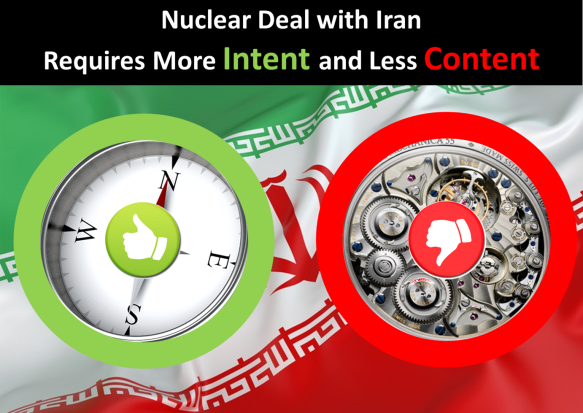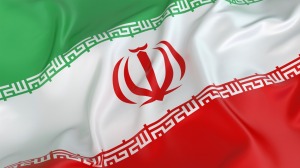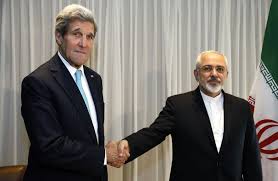Let’s face it: many people in the US, in Europe and in the Middle East are terrified of Tehran. This is not a question of right or wrong, or of differing points of views…it is a fact.
People who fear Tehran will point out that it supports terrorism, that it meddles in its neighbors politics, that it will militarize its nuclear program, that it aggressively calls for the “death” of America/Israel/Britain etc…and that it is impervious to criticism on issues of human rights.
Supporters of Tehran would answer that it is actually fighting against terrorism, that it is “helping” out its neighbors, that it has the right to create a nuclear bomb, that it is rightfully the enemy of the US/Israel/Britain etc… and that it can decide for itself what is an abuse of human rights and what isn’t.
But terrorism, meddling, nukes, death threats and human rights are only the symptoms of the main issue that makes Tehran scary: The regime in Tehran and the ideals that power it.
In order to understand this better, one should simply listen to Zarif, Iran’s Westernized, moderate and smiling foreign minister of Iran, own words.
Just listen to Zarif…
- Why is Tehran scary?
Tehran has a “viewpoint that has the potential to be projected globally and change the international order…why doesn’t Malaysia face such problems? It is because Malaysia does not seek to change the international order…it may seek independence and strength, but its definition of strength is the advancement of its national welfare”.
In other words, Tehran is not content to simply thrive in its own right within the boundaries of its country. Its worldview is one of leading a change on a global scale. As such, it defies existing worldviews dominated by the West in general and the US in particular. Changing the “international world order” is scary for anyone who is enjoying the current “international world order”…specially since Tehran is ready to use any method necessary to do so. - What exactly is Tehran’s worldview?
Zarif doesn’t need to elaborate on this but it is written in Iran’s constitution and is commonly known as “Exporting the Revolution: “The Islamic Republic supports the just struggle of the mustazafun(the oppressed) against the mustakbirun (the arrogant) in every corner of the globe.”
Tehran has taken upon itself the “duty” to export the Islamic revolution to all countries in which it feels that people are oppressed. The fact that such a revolution is meant to unseat the governing bodies of these countries will be seen as subversion by these governments is beside the point. Perhaps unseating governments in the EU or in the US seems fantastical for now, but attempting (or succeeding) to do so in Lebanon, Syria, Iraq, Yemen, Bahrain etc…is a reality. In general, revolutions scare governments and an Islamic revolution with a global reach is sure to instill fears in non-Muslims all over the world. - What is the importance of this worldview to Tehran?
Quite simply, “Without revolutionary goals we do not exist …our revolutionary goals are what distinguish us from other countries.”
In other words, the regime in Tehran, without these goals, would lose its identity and its raison d’aitre, putting an end to the glory of the Islamic Revolution in 1979. This is a crucial point that was echoed by Khamenei himself and which terrifies Iran’s adversaries: Tehran can not make peace with the world as it is since it is bound to its revolutionary goals. - How does all this tie in with the nuclear deal?
According to Zarif, the West dragged “the Iranian nuclear issue into the international politics” in order “prevent Iranian influence from growing further.”
Although Western nuclear negotiators might resent such a statement, it seems that Zarif is 100% right and that’s why the nuclear deal is not the real issue here: the real issue is whether the P5+1 accept Iran’s aspirations for regional and Islamic dominance or not. Tehran, as it is, scares the West…Tehran with nuclear capabilities are scarier. - How does this affect Iran’s relations with the US/West?
Zarif has no illusions: “Relations with the US is neither necessary, nor haram (religiously prohibited) … No two countries have completely friendly relations and I believe that our relations with the US will never be friendly” but “the art of diplomacy is to maximise your benefits at minimum expense“. And all this should be done with a smile since “the art of a diplomat is to conceal all turbulence behind his smile.”
A nuclear deal is not the “beginning of a wonderful friendship” between Tehran and the rest of the world. It is a deal that is meant to “maximise benefits” in the short run. As long as the regime in Tehran continues to view the US as an enemy, that will be the status quo. Sanctions may be removed, business may boom but chants of “Deah to America” will continue.
So the next time you think about supporting or criticizing Tehran, remember that its goals are far reaching and are based on its aspirations for a global revolution against the Western “hegemony”. At the end of the day, it is not the weapon itself which is to be feared but the mindset and the intentions of the person using the weapon. Decide on which side of the weapon you want to be.
Realte Posts:
- tehran-doesnt-invade-it-infiltrates
- khameneis-crescent-of-control
- who-is-spreading-islamophobia
- iran-turns-meddling-into-method
- younesi-is-scapegoat-for-persian-empire-statement
- iran-is-king-of-the-meddle-east
- back-to-the-future-iranian-empire
- iranian-involvement-in-syria-escalates-alarmingly
- tehran-redefines-terrorism

























